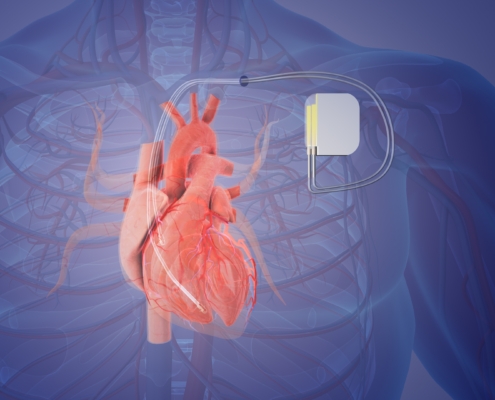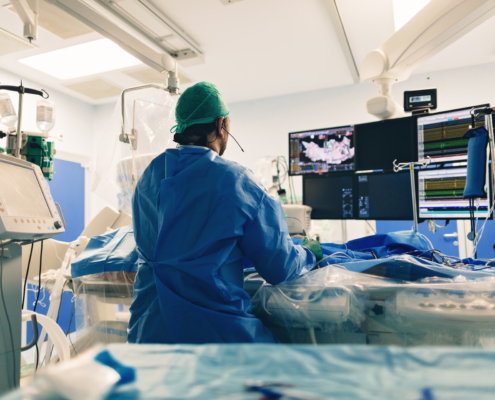Electrophysiology
Your heart has a “natural pacemaker,” consisting of small areas that stimulate the electrical current that makes it beat, and when these areas don’t work correctly, it can cause a dangerously low or fast heart rate. Electrophysiology treatments at Cardiology Associates of Port Huron, P.C. can restore this fluctuation seen in your heart rate, though the type of treatment you’ll need depends on your arrhythmia.
Cardioversion and Radiofrequency Ablation
These treatments are usually recommended for less severe arrhythmia. During a cardioversion treatment, your cardiologist places electrodes on your chest and uses electrical shocks to try and restore the normal rhythm of the heart.
Radiofrequency ablation involves the insertion of an electrode catheter into a large vein or artery which maps the source of irregular impulses and sends high-frequency radio waves to destroy the troublesome cells.
Pacemakers and ICDs
If you have a severe arrhythmia, your physician may decide you need a pacemaker or an implantable cardioverter-defibrillator (ICD). This small, electronic device monitors your heart to ensure it isn’t beating too slow or fast.
When the heartbeat is slow, the pacemaker will produce an impulse to make it beat at a higher rate; when the heartbeat is fast, the ICD delivers a shock to slow your heart to a more reasonable pace.


